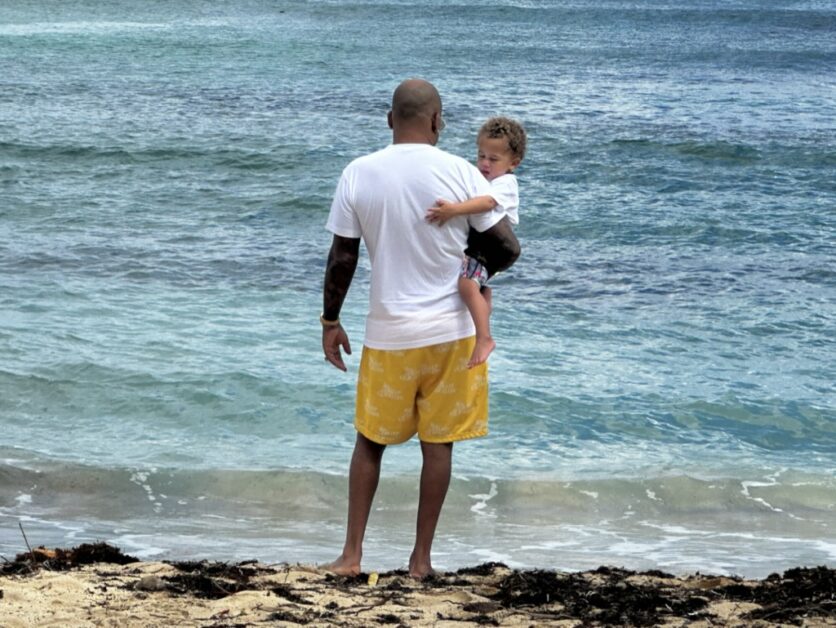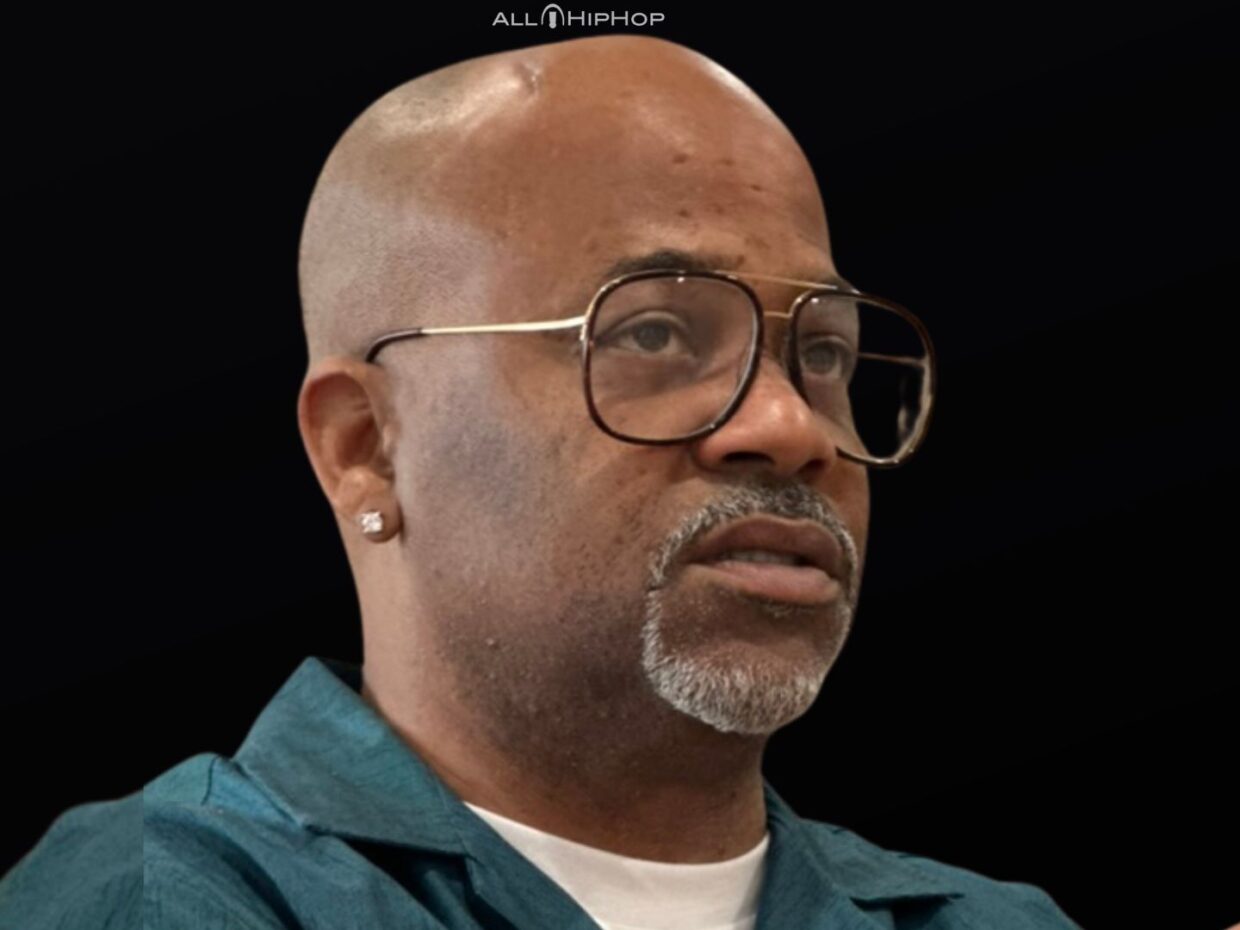When it comes to Hip-Hop and entrepreneurship, few names have made an impact quite like Dame Dash. He rose from the streets of New York to the high echelons of business and entertainment to craft a unique story of perseverance and innovation. Dash co-founded Roc-A-Fella Records with Jay-Z and Kareem Burke. That is known, but he didn’t start there nor did he end there.
Dash’s early entrepreneurial spirit manifested in New York City barbershops and sidewalks as he sold newspapers. He quickly moved into the music world with artists like Original Flavor, setting up his legendary path. Dash’s ambitions didn’t stop at music. His multifaceted business acumen continues today, although the road has been jagged.
These days, Dash admits that his money is funny, but that hasn’t quelled his desires. He recently launched the television network America Nu, collaborated with Freeway on a new album and various other ventures. Chuck “Jigsaw” Creekmur and DJ Thoro discuss with Dame Dash how his relentless pursuit of new challenges and frontiers is simply representative of his humble beginnings.
Why Roc-A-Fella Isn’t Dead
Anything I do with any Roc-A-Fella, Roc-A-Fella’s not dead. It don’t die until I say so. And actually, Freeway has been doing a lot with education. He got the Freedom Thinkers Academy and he’s going through a lot of defining moments to say the least. And he showed a whole lot of strength. And despite anything that he’s going through, he still balls up. He seems like he’s become the general of State Property. He’s doing shows so he’s what a Roc-A-fella should be.
So Roc-A-Fella is not dead, just like rock and roll’s not dead. It’s just that I’ve been taking a nap. I’ve been out creating a television network, which is what I’ve been working on for the last 13 years and figuring out how we are getting robbed with CPMs and data and making sure I don’t and educating everybody else.
Dame Dash On “Bringing Back” Rock-N-Roll
We started rock-n-roll. They tried to take credit for that. So I felt like I see the kids wearing a lot of old school rock and roll shirts and a lot of times I ask them do they listen to the artists that they’re wearing? They don’t know. They’re wearing a Grateful Dead shirt, so I think they need some rock-n-roll that they could connect to.
A lot of people might not know that I put the Black Keys on. We did a project called BlakRoc and we put [them with] Mos Def and Pharoahe Monch and RZA and Raekwon and Jim Jones. It was just I wanted to do rock and roll because I’m a rock star. So I’ve always looked at the Dipset and State Property as rock stars.
I love Hip-Hop, but I listen to rock and roll more than I listen to Hip-Hop. And people don’t know that. And the reason why is because Hip-Hop triggers me. I was in the street, I saw all that. I’m trying to forget about it. I don’t want that energy around my children, my daughters. I don’t want to feel that anxiety of hustling and carrying a gun and not knowing if we’re going to… being prepared to do all that. It’s traumatizing. So I’ve always escaped through rock-n-roll, Pink Floyd and Janice Joplin and even all kind Mars Volta. You know who knew a lot about rock-n-roll? I was shocked. Erykah Badu.
The Difficulties of Being Black & In business.
We’re taught that we can only all hustle for one dollar, the black dollar, and that we should not be in competition with them. We should always only be in competition with each other. So you notice when there’s like a Black man owns a company, it’s a black company. When a white man owns a company, it’s a company.
And that’s why my staff is so eclectic because it’s not just a focus and that division is what keeps us always fighting each other because we always fighting over the same block and we’re never trying to take their market share. So I’m not asking to be celebrated. I’m taking it. I’m not going to ask. I don’t expect my oppressor to give me props for beating their ass, or proving them wrong, or going against their systematic way of controlling us. I don’t expect that. I don’t want it.
When they celebrate me too much, that means I’m working too hard for them. And anyone that gets celebrated too much by them is not doing too much for us. So what I notice is I get celebrated by us, not them. I don’t expect them to celebrate us, but I live on their block, and I go to their schools, or I spend money everywhere they spend money. So they’re not better, and I never think and want what they got. And any room I walk into, I always have a “superior I’m cooler than you complex” because I didn’t have to sell out and we’re still in the same room. We’re still in the same conversation.
Why He’s Always “Broke”
Because people be thinking I’m superhuman. I’m just like, I’m professional. A professional works at a different speed. It’s not a hobby for me. I got to eat off this s###. That’s why I’d be like, “Yo, I’m broke.” All I got is money for my bills and the company’s bills because if the company don’t make money, we don’t eat. I’m a savage like that. I’m a wild animal. I’m not tame. So that’s why I’m very active. This is life I chose and the freedom is priceless.
But you got to remember, maybe people don’t understand. I’m 52. Roc-A-Fella was over when I was 35 and literally I retired. Now first of all, think about kids 30 to 35, what they was doing at that time. Thirty-five I was already a legend at 35 and it took me six years to get Roc-A-Fella cracking, six. And it wasn’t enough money, the exit strategy at all at all, at all. It wasn’t enough that I could retire. And anyone that says it is is lying. And the television network has taken me double the time and I know it’s going to be a hundred times the bread when it turns over.
Recognizing Teenage Trauma
Since I was 16, I’ve been a boss. What does that look like? I can’t even fathom what it looked like. I was a manager and had a record deal as a teenager at 19. Roc-A-Fella came out in my 20s. I was the CEO of a…(major independent label). So I be looking at (my own kids)…like, “Man, when I was your age, what?”
But what came with that was a lot of pain, a lot of unrecognized trauma. I consider myself lucky, word. The fact that I was able to survive that era and then pivot right into the era of Biggie Smalls and Nas and Jay and Tupac, and I’m in the game and I’m in that conversation. And then now, all these decades get later to still be just as relevant and be doing new things. That now is old school, but I remember when it was current and we was laughing at everybody old and what they would look like at 50 and all that s###. And I always wondered, I’d be like, “I wonder if I get gray hair will I dye it.” I never knew but I can’t.

